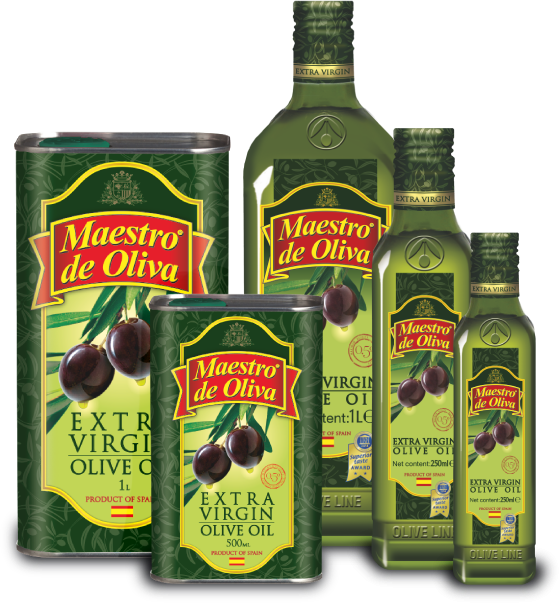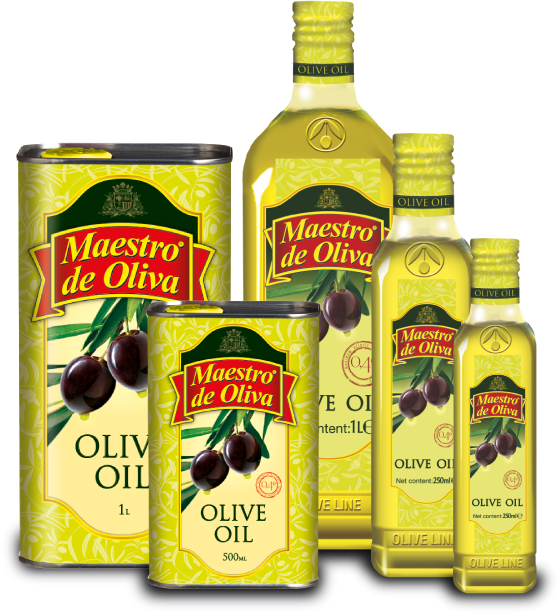IN RUSSIA
Maestro de Oliva olive oil is represented on the Russian market for more than 20 years.
Maestro de Oliva is a balanced mixture of olive oils of different varieties. That is why it acquires a rich taste and unique aroma.
Due to its excellent quality, consumers choose it, and experts mark it. Maestro de Oliva Extra Virgin olive oil has been receiving prestigious awards and prizes for many years.
OF OLIVE OIL
- only mechanical pressing
- collection and processing within 24 hours
- preservation of nutritional value up to 2 years
- maximum acidity is 0.8%
- perfect for salads and sauces
- taste has bitterness
- Mixture Extra Virgin and refined olive oil
- Ideal for frying
- Acidity up to 1%
- Second pressing
- Ideal for frying and deep-frying
ABOUT OLIVE OIL
OLIVE OIL?
-
COSTExtra Virgin Olive Oil can not be cheap. If you see a very low price on the tag, this should alert you. Check the expiration date on the package. Authentic Extra Virgin oil does not lose its useful properties and can be stored from 18 months to 2 years.
-
PACKAGINGIt is best to buy olive oil in a glass or tin container. Packaging of olive oil should be sealed and must protect the product from sunlight. Glass bottles for Extra Virgin are obligatory made of dark glass. Sunlight accelerates the oxidation process, in which oil gradually loses its useful properties, quality and taste.
-
ACIDITYOne of the most important indicators of the quality of olive oil is its acidity. For each type of oil, its acidity limits are established. In Extra Virgin oil, it should not exceed 0.8%. Lack of acidity measurement on the package should alert you.
-
MANUFACTURER
HEALTH BENEFITS
The Research Institute of Nutrition of the Russian Academy of Medical Sciences conducted a Clinical Approbation of the Anti-Atherogenic Diets with Maestro de Oliva Extra Virgin olive oil study, and recommends Maestro de Oliva in therapeutic and preventive nutrition. The results of the research confirm that the natural Extra Virgin olive oil Maestro de Oliva has the following health benefits:
-
 Skin
Skin
HealthHas a rejuvenating effect -
 Bone
Bone
HealthStrengthens bone tissue -
 Blood CirculationReduces cholesterol and the risk of thrombosis
Blood CirculationReduces cholesterol and the risk of thrombosis -
 Diet and DigestionPromotes better digestion
Diet and DigestionPromotes better digestion -
 Endocrine systemStimulates the endocrine system
Endocrine systemStimulates the endocrine system -
 Heart and blood vesselsPrevents the aging of the organism and the development of diseases of cardiovascular system
Heart and blood vesselsPrevents the aging of the organism and the development of diseases of cardiovascular system -
 OncologyHelps reduce the risk of cancer
OncologyHelps reduce the risk of cancer
AWARDS
Product of the year


taste




